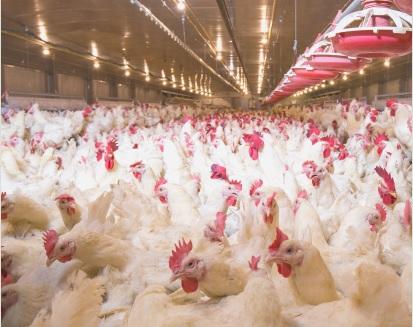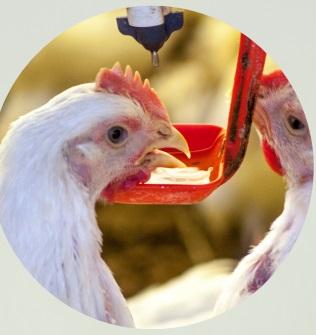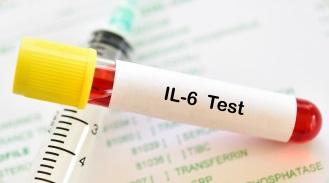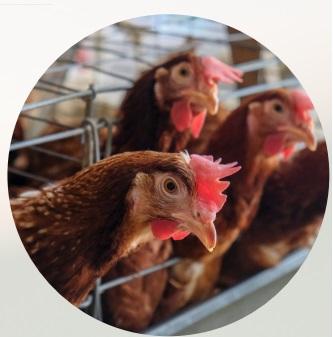
Content sponsored by:
LIPTOSA
Poultry coccidiosis
Published: August 2, 2022
By: Carlos López, Veterinary

Economical Impact
Nowadays, coccidiosis is still considered one of the infectious diseases with the greatest economic impact in the poultry industry, both for the productive losses it causes and for the high costs associated with its prevention and treatment (which are estimated to reach more than 3 billion USD per year).
For decades, the use of anticoccidials (ionophore antibiotics and/or chemical coccidiostats) in the feed, either continuously or as part of rotational or shuttle programs (as to avoid, or at least to delay the appearance of resistances) have been effective tools in its management of coccidiosis.
However, the great capacity of Eimeria species to develop resistances against these compounds (which have been already demonstrated against the 11 coccidiostat products authorized in the EU), together with a constant legislative pressure about its use and an increased market demand for safer, free range and environmentally friendly products, lead to a new scenario in which the use of phytobiotics as a coccidiosis control tool plays an important role.
There is a large and growing literature about the anticoccidial activity of different natural products (plant extracts, essential oils...), having also been shown that the inclusion of phytogenics in the diet enhances the innate defence mechanisms of the animals, which allows to effectively eliminate and/or reduce the need for treatment for enteric infections.
COCCILIP®, a product based on a synergistic mixture of protected botanical compounds with fatty acids, is our phytobiotic proposal for strengthening intestinal health, offering as well, a protection against both, coccidiosis, and necrotic enteritis.
The efficacy of the product at different dosages has been assessed against a conventional coccidiostat in animals subjected to a challenge against several Eimeria species, evaluating the productive performance, the immune response and the intestinal lesions..
Results
Regarding the zootechnical performance, it should be noted that supplementation with Coccilip numerically improved the weight of the birds, equalizing at the end of the cycle the values of the negative control (not subject to challenge). Likewise, the group supplemented with 600 g/t of Coccilip obtained the best FCR of all the groups, which highlights the beneficial effect of the product over intestinal health.
Data clearly suggests that, although the Eimeria challenge caused an increase of oocysts shed in faeces, regardless the treatment, the number of oocysts in faeces was numerically lower in those groups supplemented with Coccilip.

Interleukin 6 (IL-&) is a pro-inflammatory cytokine that plays a key role in mediating inflammation, and it has been shown to be induced also by Eimeria (Min et al., 2003; Hong et al., 2006 and Sumners et al., 2011).

Interestingly, concentration of IL-6 was significantly lower in the groups supplemented with Coccilip as compared with the other groups (NC, PC and conventional coccidiostat Group). It suggests that Coccilip could control proliferation of Eimeria species effectively and thus could check the inflammation successfully. This ought to have saved a considerable quantity of nutrients which might have contributed to the better performance of the birds supplemented with Coccilip in their diets.
Results also show that supplementation with Coccilip allowed to alleviate the intestinal lesions to a great extent, achieving a better response than the conventional coccidiostat.
These results, among others, position Coccilip as an effective natural control tool against Coccidia, allowing its use as a replacement for conventional coccidiostats, as one more alternative in rotation/shuttle programs, as well as its joint use, at lower doses, with conventional coccidiostats, as an extra support against coccidia and other digestive disorders, eliciting a beneficial effect on intestinal health and having a positive impact over the productive performance of birds.

*Certain information associated with products, their composition and claims may be different depending on the geographical region and may not be applicable in all countries. Liptosa reserves the right to adapt to the requirements and legislation in each case.
The information and technical recommendations provided herein are based on Liptosa's current knowledge and experience.
Liptosa reserves the right to update the information and arguments contained in this platform, as well as to make any changes to this information or recommendation at any time, without prior or subsequent notice.
Related topics:
Authors:

Influencers who recommended :
Ewa SujkaRecommend
Comment
Share

Would you like to discuss another topic? Create a new post to engage with experts in the community.


